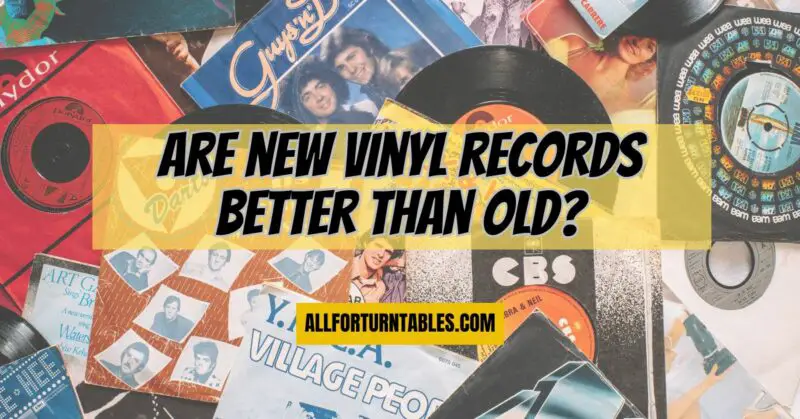The vinyl record has experienced a remarkable resurgence in recent years, with music enthusiasts and collectors alike embracing this analog format. As vinyl production continues to thrive, a pertinent question arises: are new vinyl records better than their vintage counterparts? In this comprehensive article, we will delve into the various aspects of new and old vinyl records, comparing their quality, sound characteristics, and overall appeal.
- Vinyl Quality:
One of the key factors in determining whether new vinyl records are superior to old ones is the quality of the vinyl itself. Over time, vinyl records can degrade due to wear and tear, exposure to environmental factors, and poor handling. New vinyl records, on the other hand, benefit from modern manufacturing techniques and materials. They are often pressed with greater precision, using higher-quality vinyl compounds, resulting in records that are less prone to warping and surface noise.
- Audio Mastering and Pressing:
The mastering and pressing processes play a significant role in the sound quality of vinyl records. Older records were often mastered differently, with a narrower dynamic range, which can affect the sound quality. Modern vinyl releases are typically mastered to meet contemporary audio standards, offering a more balanced and dynamic listening experience.
- Vintage Charm vs. Modern Convenience:
One of the appeals of old vinyl records is their historical and nostalgic value. Collectors often appreciate the unique imperfections and character of vintage records, including the cover art, label design, and manufacturing quirks. On the other hand, new vinyl records may lack the same historical significance but provide the convenience of purchasing and playing a pristine copy of a classic album.
- Availability and Rarity:
Some older vinyl records, especially those from limited pressings or obscure artists, can be rare and highly sought after by collectors. New vinyl releases, however, offer a chance to own or discover music that might be otherwise inaccessible or prohibitively expensive in its vintage form.
- Remastered Reissues:
Many record labels are reissuing classic albums on vinyl with improved mastering and pressing techniques. These remastered reissues often provide the best of both worlds—combining the nostalgia of the original with the improved sound quality of modern vinyl production.
- Condition and Handling:
The condition of an old vinyl record can vary greatly, impacting its playability and sound quality. Vintage records may suffer from scratches, surface noise, and wear on the grooves. New vinyl records, when handled and stored correctly, start with a clean slate and have a longer potential lifespan.
- Sound Characteristics:
The sound characteristics of vinyl records, whether old or new, can be highly subjective. Some listeners prefer the warmth, depth, and analog qualities of vintage records, while others appreciate the cleaner, more accurate sound of modern pressings. Sound quality can also be influenced by the playback equipment used.
The debate over whether new vinyl records are better than old ones ultimately comes down to personal preference and the specific release in question. New vinyl records generally benefit from improved manufacturing techniques and mastering processes, offering superior sound quality and durability. However, vintage records hold a unique appeal for collectors, offering historical significance and character. Ultimately, the choice between new and old vinyl records depends on your priorities as a music enthusiast, collector, or audiophile, with both options contributing to the enduring allure of vinyl in the digital age.


